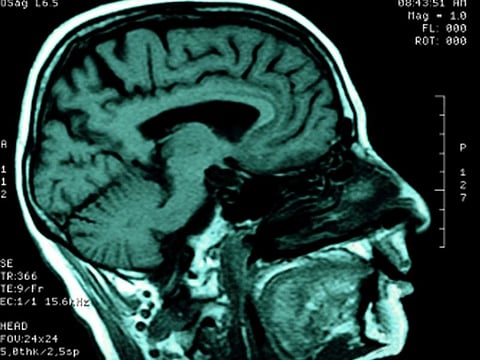FRIDAY, Aug. 4, 2017 (HealthDay News) -- For patients with a transient ischemic attack (TIA) or ischemic stroke who use antiplatelet agents, a score with multiple predictors can be used to estimate the three-year major bleeding risk, according to research published online Aug. 2 in Neurology.
Nina A. Hilkens, M.D., from the University Medical Center Utrecht in the Netherlands, and colleagues combined individual patient data from six randomized clinical trials that examined antiplatelet therapy after TIA or ischemic stroke. The authors derived and validated a risk prediction model to examine the correlation between predictors and major bleeding, and assessed performance with the c statistic.
The researchers found that during 94,833 person-years of follow-up, major bleeding occurred in 1,530 of the 43,112 patients. The estimated risk of major bleeding over three years was 4.6 percent; predictors included male sex, smoking, type of antiplatelet agents (aspirin-clopidogrel), outcome on modified Rankin Scale ≥3, prior stroke, high blood pressure, lower body mass index, elderly, Asian ethnicity, and diabetes (S2TOP-BLEED). The c statistic of the S2TOP-BLEED score was 0.63, exhibiting good calibration in the development data. Major bleeding ranged from 2 to more than 10 percent in patients aged 45 to 54 years without additional risk factors and among patients aged 75 to 84 years with multiple risk factors, respectively. The model had a c statistic of 0.61 in external validation, and slightly underestimated the risk of major bleeding.
"The discriminatory performance may be improved by identifying stronger predictors of major bleeding," the authors write.
Several authors disclosed financial ties to the pharmaceutical industry; several pharmaceutical companies provided access to databases.
Abstract
Full Text (subscription or payment may be required)
Editorial


